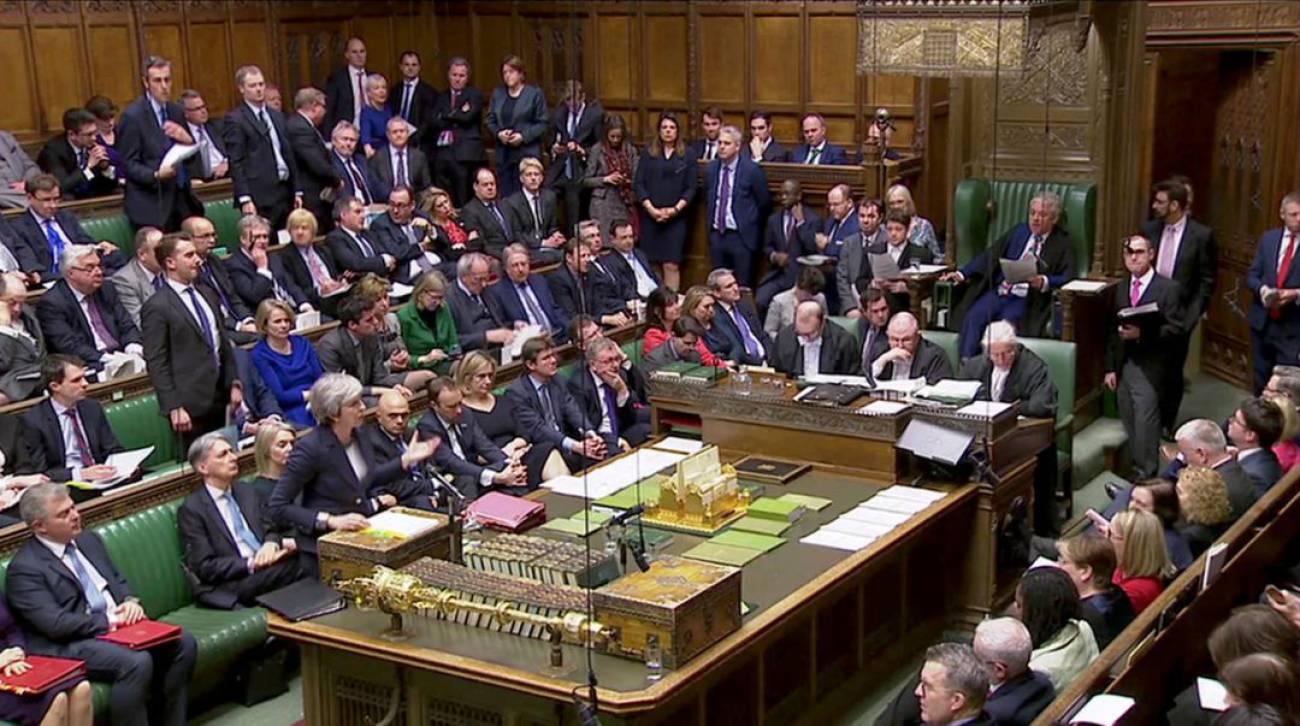
Source: Cadena Ser
May will try to reach an agreement to request the Union to extend Article 50 and not activate the abrupt departure. It will take a motion to the Parliament to stretch the brexit three months if there is no agreement in the chamber before March 20. They will vote on the matter this Thursday, but the crisis has already claimed the resignation of Minister Sarah Newton
The Parliament of the United Kingdom has refused on Wednesday to leave the European Union without an agreement. The chamber has approved the amendment to rule out a disorderly departure from the Union under any circumstances by 308 votes against 312, a minimum margin of four votes. The motion expresses the will of the Parliament although it is not binding for the final action of the government. The result, in any case, has already caused a resignation: that of the Minister of Work and Pensions Sarah Newton.
The so-called Spelman amendment, which is the one the chamber has approved to say ‘no’ to leave the Union abruptly in the first place, included in the text that «the UK refuses to leave the European Union without a withdrawal agreement and a framework for the future relationship. » This has been incorporated into the government’s motion, which proposed not to leave without an agreement but did not completely close the door to that possibility. Added the amendments, the government motion has been approved by 321 votes in favor and 278 votes against, extending the rejection to a «brexit» without agreement not only on March 29, but in any case.
The confusion in Parliament has been such that the executive has come to ask the members of his party at the last moment to vote against his own motion for not sharing the amendment that extended the total refusal to leave without agreement. Conservative deputies, however, have decided not to respect this request and vote freely. Even some ministers have ignored May’s request, which suggests that there could be more resignations.
The government had also stated that it would not ask the Union to extend article 50, that of the EU exit procedure, because doing so would be tantamount to prolonging the problem. But May has declared in the chamber that he will ask for what happened on Wednesday, which marks the extension as the only way. «We will try to achieve an extension of the date of departure with the EU,» he said. He has also asked the camera for an agreement on the vote this Thursday. Parliament will then vote on the request for that extension. May, in any case, recalled that the Union was «very clear» in saying that this was the only possible agreement.
The prime minister’s new proposal, which will be put to the vote tomorrow, is for the UK to request a three-month extension for the «brexit» if it fails to approve an exit deal in Parliament before March 20.
If the commons have not ratified a pact by that date, the British Government warns that the extension could be longer and force the United Kingdom to participate in the community elections next May. Right now, the official date to leave the EU is March 29.
The head of the negotiation by the European Union, Michel Barnier, has expressed his skepticism about the usefulness of a new extension. «Extension for what?» Barnier had asked himself before the vote. He insists that there is no margin to modify the agreement with which May went to Parliament on Tuesday.
Labor leader Jeremy Corbyn has declared that this extension «is inevitable» but has stressed that it is the responsibility of the Prime Minister. «Extending without a clear objective is not the solution», Corbyn added to what, at the moment, seems a way to buy time. The Labor Party has said that by doing what May has not done, he will work to seek an agreement on this, while still not openly defending a second vote and betting on a soft brexit, without leaving the customs union.
The British Minister of International Trade, Liam Fox, recalled at the close of the debate held before the vote that 80% of the deputies of the lower house were chosen under electoral programs that promised to respect the outcome of the June 23 referendum of 2016, which gave victory to the «Brexit».
«Or we go with agreement, and the only possible one is May’s, or we leave without agreement, the only alternative to that is to revoke Article 50 and that there is no ‘brexit’,» he concluded.
The EU: to avoid a Brexit without agreement it is not enough to vote against, you must accept a pact
The European Union also reacted on Wednesday to remind the British Parliament that it is not enough to vote against a Brexit without an agreement to avoid this scenario and that if it wants the opposite it must «accept an agreement».
«To leave a ‘no agreement’ out of the table, it is not enough to vote against the lack of agreement, you have to agree on one,» said a spokesman for the European Commission, noting that the EU «takes note» of the vote of